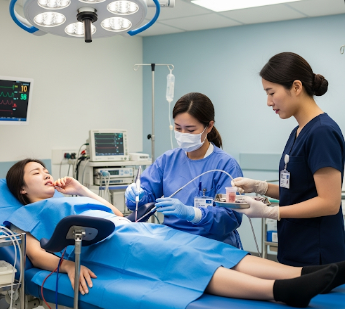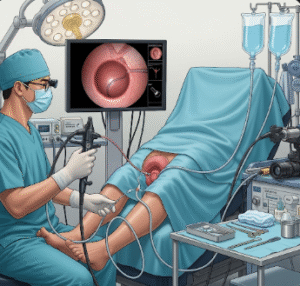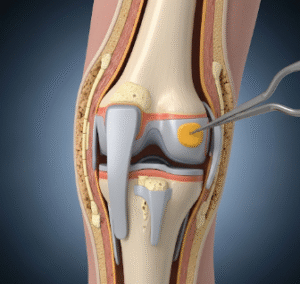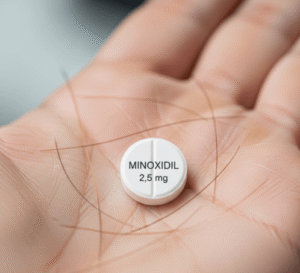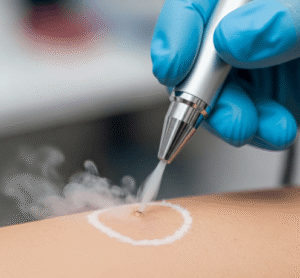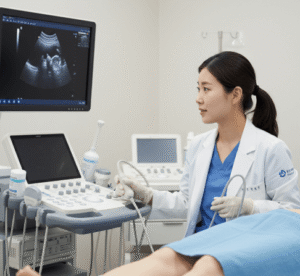Overview
An endometrial biopsy is a minimally invasive procedure that involves taking a small tissue sample from the lining of the uterus (endometrium). This test helps detect abnormalities, infections, precancerous changes, or cancer, and is often used in evaluating abnormal uterine bleeding, infertility, or hormonal disorders.
In South Korea, endometrial biopsy is performed in advanced gynecology clinics and hospitals with modern equipment and expert obstetricians/gynecologists, ensuring patient comfort, accurate diagnosis, and safe management.
What is an Endometrial Biopsy?
An endometrial biopsy involves collecting a small tissue sample from the uterus for microscopic examination. This procedure helps:
- Diagnose abnormal uterine bleeding
- Detect endometrial hyperplasia or cancer
- Evaluate hormonal status in infertility assessment
- Identify chronic infections or inflammation
- Monitor treatment response in women on hormonal therapy
The procedure is quick, outpatient-based, and generally well-tolerated, with minimal discomfort.
What are the benefits?
Endometrial biopsy offers multiple advantages:
- Early detection of uterine abnormalities → crucial for timely treatment
- ➤ Guides infertility treatments by evaluating endometrial receptivity
- ➤ Minimally invasive → no need for hospital admission or extensive recovery
- ➤ Quick results → tissue analysis usually available within a few days
- ➤ Reduces unnecessary invasive procedures by providing accurate diagnosis
- ➤ Safe and widely available in Korea, with modern tools reducing discomfort and complications
Procedure Details
1) How should I prepare for Endometrial Biopsy?
Preparation helps ensure accurate and safe testing:
- Schedule timing → typically performed during the mid-luteal phase of the menstrual cycle for infertility assessment.
- Avoid certain medications → inform your doctor about blood thinners or hormonal therapy.
- Pain management → mild pain relievers may be recommended before the procedure.
- Empty bladder → makes the procedure more comfortable.
- Informed consent → discuss potential risks and benefits with your gynecologist.
2) What happens during the procedure Endometrial Biopsy?
The procedure is usually quick, taking 5–15 minutes:
- Positioning → patient lies on an examination table with legs in stirrups.
- Speculum insertion → opens the vagina for clear access to the cervix.
- Cervical cleaning → disinfectant applied to reduce infection risk.
- Tissue sampling → a thin tube or curette is inserted into the uterus to collect tissue from the endometrial lining.
- Sample collection → tissue is preserved in a container for laboratory analysis.
- Completion → the instrument is removed, and mild bleeding or cramping may occur.
In Korea, endometrial biopsy is often performed with ultrasound guidance for enhanced accuracy and minimal discomfort.
3) What happens after an Endometrial Biopsy?
- Mild cramping and spotting → common for 1–2 days
- Pain relief → over-the-counter pain medications may be recommended
- Resume normal activities → most women return to daily routines immediately
- Lab results → typically available within 2–5 days
- Follow-up → your gynecologist reviews results and discusses treatment or further investigations if needed
Risks / Benefits
Risks:
- Mild cramping or vaginal spotting
- Rare infection of the uterus or cervix
- Extremely rare uterine perforation
Benefits:
- Accurate diagnosis of endometrial abnormalities
- ➤ Early detection of precancerous or cancerous changes
- ➤ Assists infertility evaluation and treatment
- ➤ Minimally invasive with quick recovery
- ➤ Reduces unnecessary diagnostic surgery
Recovery and Outlook
- Physical recovery → most women experience mild discomfort for 1–2 days; heavy activity or sexual intercourse may be temporarily avoided.
- Emotional reassurance → knowing the biopsy results helps in planning treatment or addressing infertility.
- Long-term monitoring → for patients with abnormal results, follow-up testing or treatment may be recommended.
In Korea, patients benefit from highly skilled gynecologists, advanced biopsy tools, and modern labs, ensuring accurate diagnosis and effective treatment planning.
When To Call the Doctor
Contact your healthcare provider if you experience:
- Heavy vaginal bleeding or clots
- ➤ Severe or persistent abdominal pain
- ➤ Fever or signs of infection
- ➤ Unusual discharge
- ➤ Symptoms persist beyond 2–3 days
Early consultation ensures prompt management and prevents complications.
Best Korea Option / Process
South Korea is recognized for state-of-the-art gynecological care:
- Advanced outpatient facilities → quick, safe, and minimally invasive biopsies
- Expert gynecologists specialized in reproductive health and oncology
- Ultrasound-guided procedures → improves accuracy and reduces discomfort
- Fast and reliable lab results → ensures timely diagnosis and treatment planning
- Comprehensive care → follow-up consultations and treatment options integrated in modern hospitals
Patients choosing Korea for an endometrial biopsy can expect safe procedures, accurate results, and professional post-care guidance, making it one of the top destinations for gynecological evaluation.

